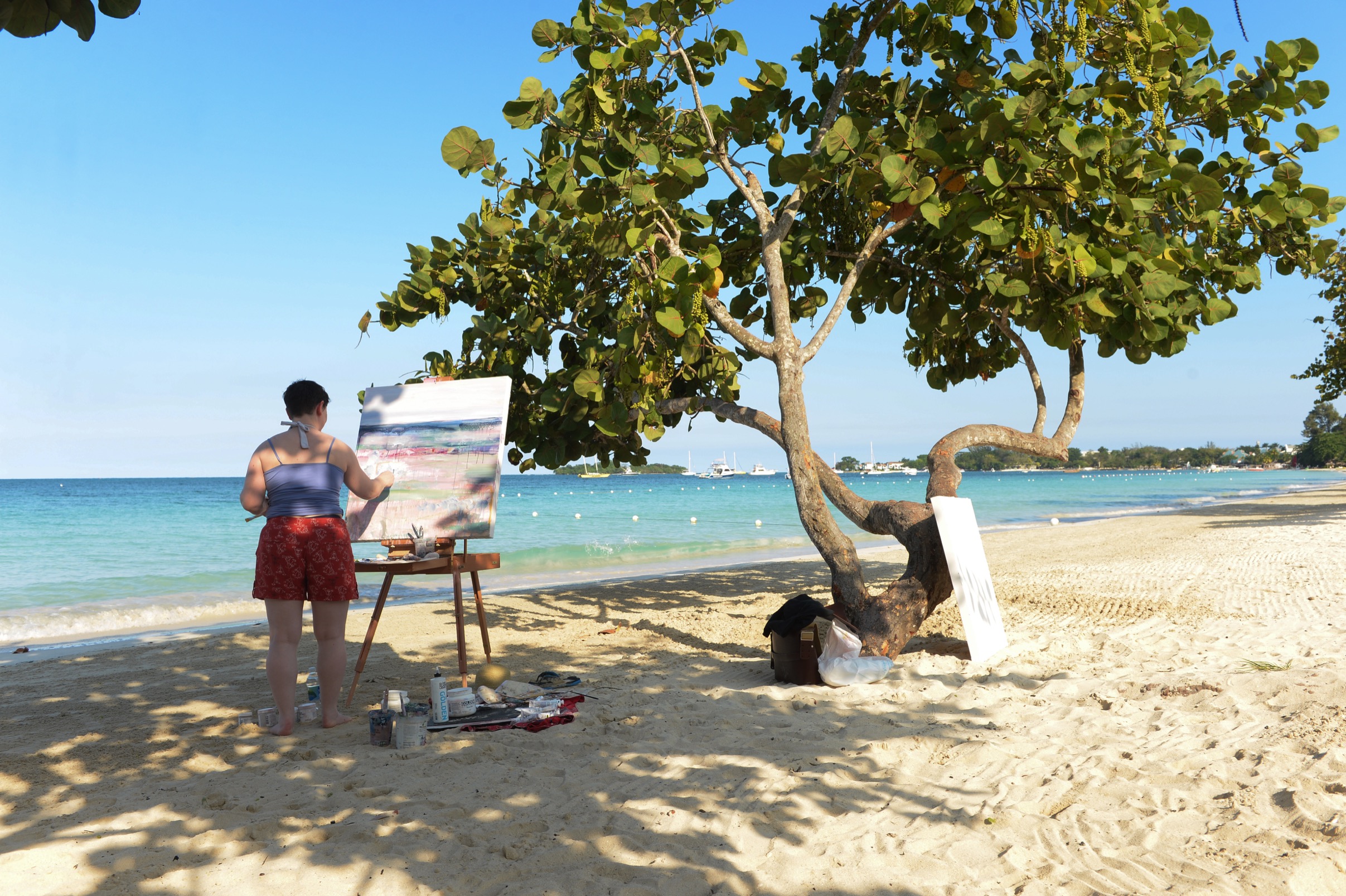Experts recommend drawing to beat Digital Amnesia
If you want your holiday memories to last longer, stop taking photos or videos – draw a picture instead.
That’s the conclusion of a team of experts who revealed the amount of time memories stay fresh in the mind depends on the number of senses used when creating them.
Typically only one sense – sight – is stimulated when taking a photo and at most two – sight and hearing – are triggered when filming something.
Drawing activates up to three, including sight, touch, sound and ‘proprioception’ (or position sense), enabling the brain to solidify the memory, thereby insuring its longer-term existence.
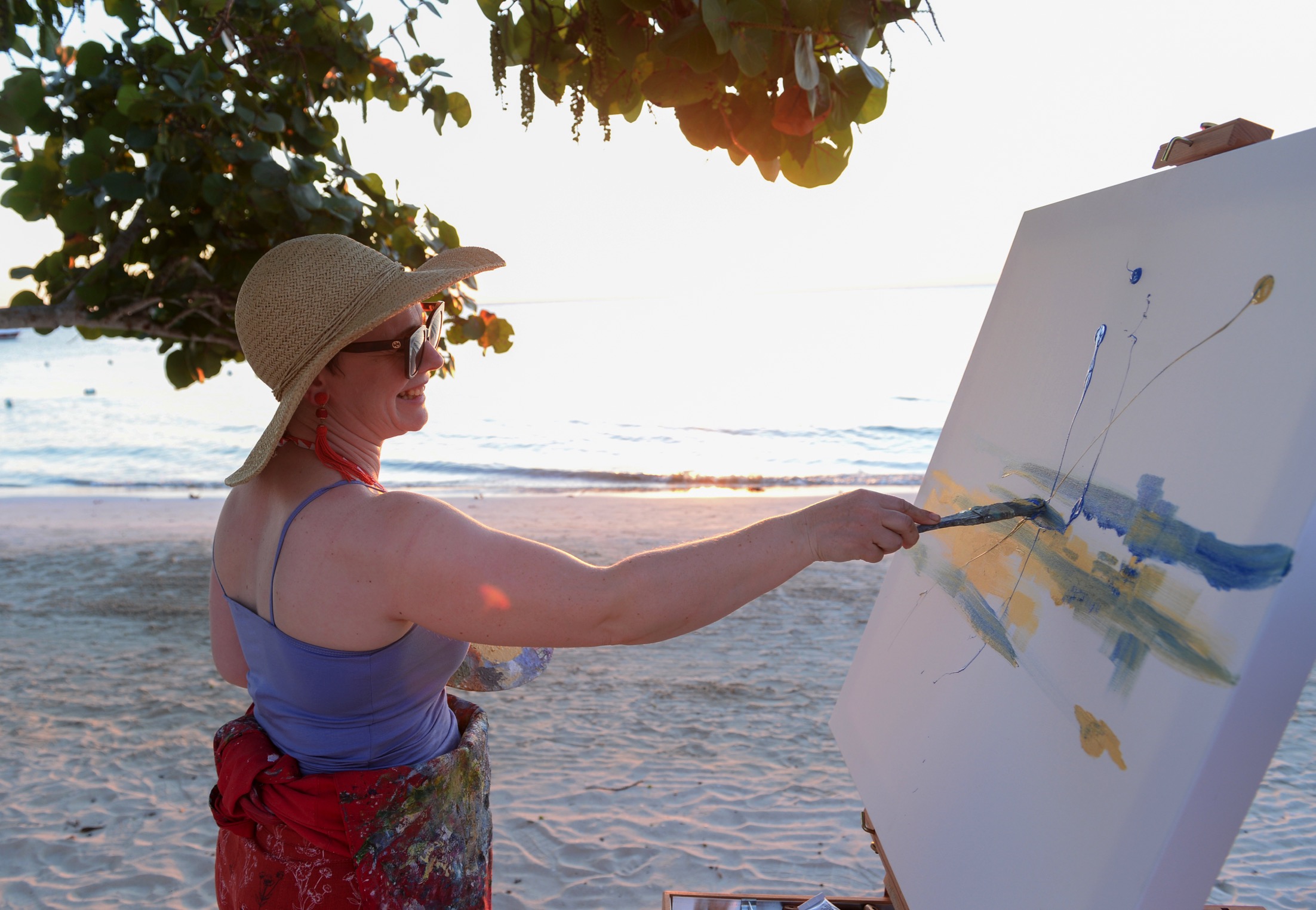
Oxford University sensory expert Professor Charles Spence reached part of his conclusion after a study of 2,000 adults discovered more than half of the population suffer from ‘Digital Amnesia’ – relying on smart phones or other devices to ‘store memories’ for them.
Professor Spence visited TUI Sensatori Resort Negril with British artist Philippa Stanton to explore how sketching can help us engage more of the senses and help us retain holiday memories for longer.
Philippa, 45, has the rare neurological condition of synaesthesia, allowing her to see and experience colours, textures and shapes when listening, tasting or smelling.
Professor Spence said: “Much of the pleasure from holidays comes from remembering, yet research reveals the average Brit’s holiday memories fade after less than two weeks.
“Our love affair with the digital image and growing affiliation to the ‘if it’s not on social it didn’t happen’ mantra, could be inadvertently fuelling a memory bank deficit.
“Scientific evidence even suggests the more senses we stimulate, the more robust the multisensory memory that is formed.
“Technology keeps our eyes occupied. But while it plays to our dominant visual sense, it fails to connect with our emotional senses.”
The research involved a study into holiday memories which discovered eight in 10 Brits wish they could remember sunshine breaks from their past better than they currently can.
It also revealed twice as many people will take a picture of a landmark on holiday, than simply try and take a mental snapshot to remember it in their mind.
But three quarters are more likely to remember things by writing them down than taking pictures or videos.
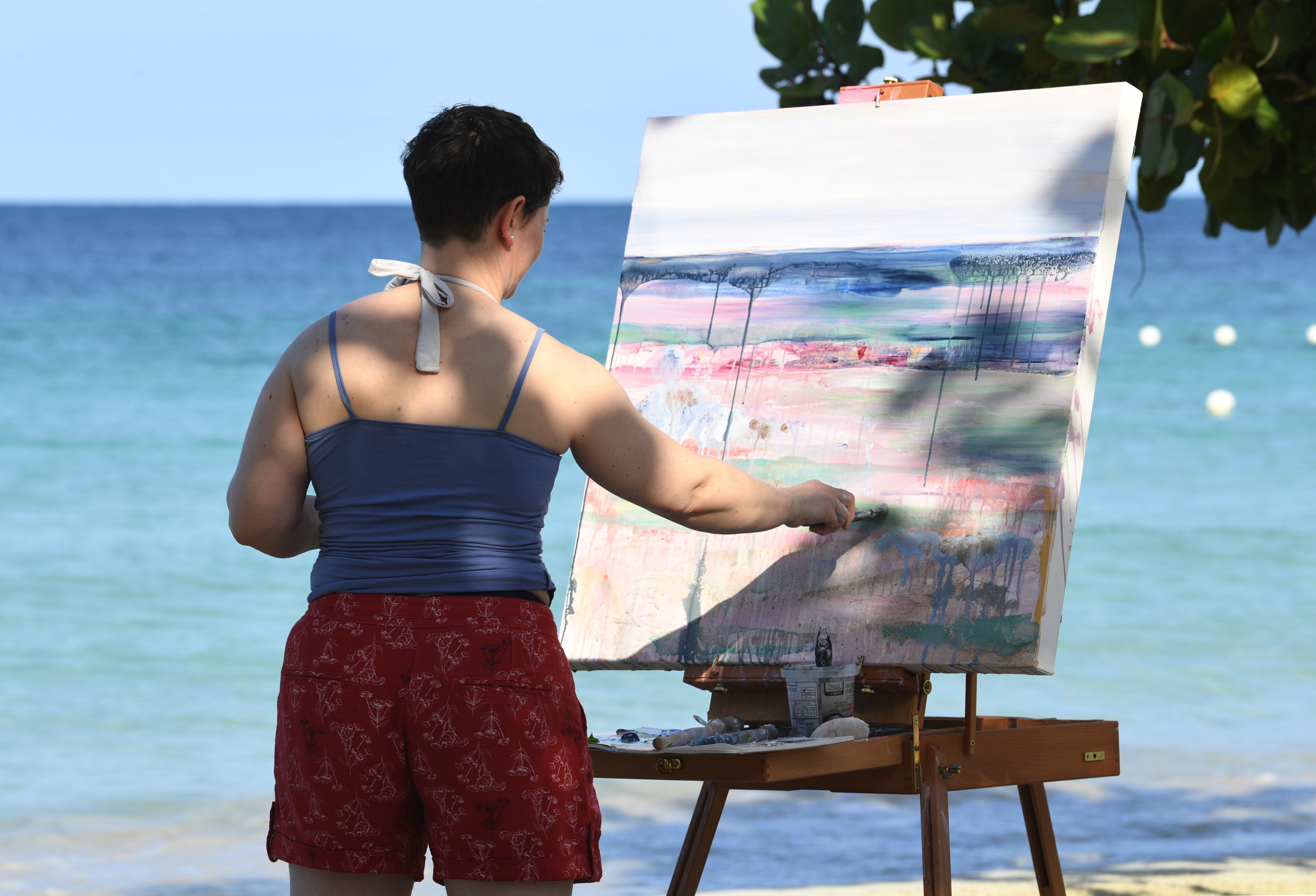
Professor Spence and his team concluded that when we remember a great time on holiday, our brains reactivate some of the moods, emotions and feelings we experienced at the time.
They also believe the more we process and think about what we are experiencing, the stronger the memories we lay down.
Sketching also has an advantage because it engages both our visual brain and our hands, and things we have a hand in creating become more meaningful to us.
With the new iPad paper screen protector you can draw and sketch on your iPad and to have the same feeling of drawing on paper. The PaperScreen film helps you improve your drawing precision.
Philippa was invited to curate a unique portrayal of summer memories by interpreting her sensory experience in the form of three pieces of art, bringing to life the sound, taste and smell of what her holiday looked like.
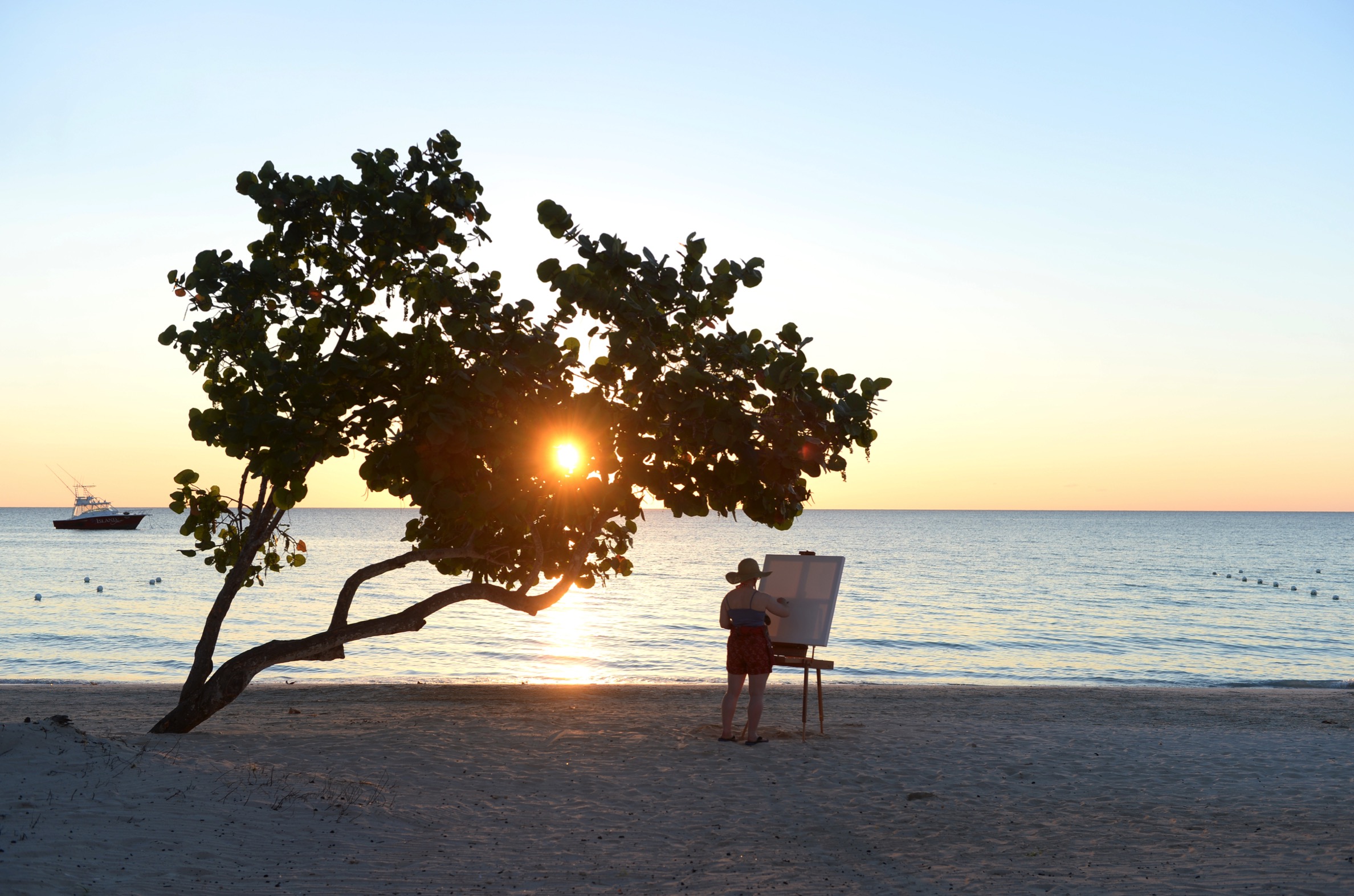
Professor Spence said: “Just because the majority of us do not have synaesthesia, I’m a firm believer that we all can experience surprising connections between our senses that we might not be aware of.
“When we watch something from behind a lens, we’re not truly living and sensing the experience. Smartphones can prevent us from creating fully-fledged memories as capturing a picture only engages one of the senses – sight.
“It’s only by really engaging with our experiences on holiday through all of our senses that we can process all the stimulating information to lay down the sorts of easily-retrievable memories that will last.”
Philippa added: ‘’While you’re on holiday, why not practice trying to make these surprising sensory connections? It’s all about getting in touch with what you feel, and being more aware – you might even call it mindfulness.”
“Doodling and sketching can be thought of as providing a structured framework for getting in touch with your inner synaesthete, where you’re likely to strengthen those connections.”
“When you come across an unusual fragrance, ask yourself what colour do you associate with it? Or try tasting an exotic juice. You can see what colour it is, but can you tell from taste alone whether the fruit is big or small?
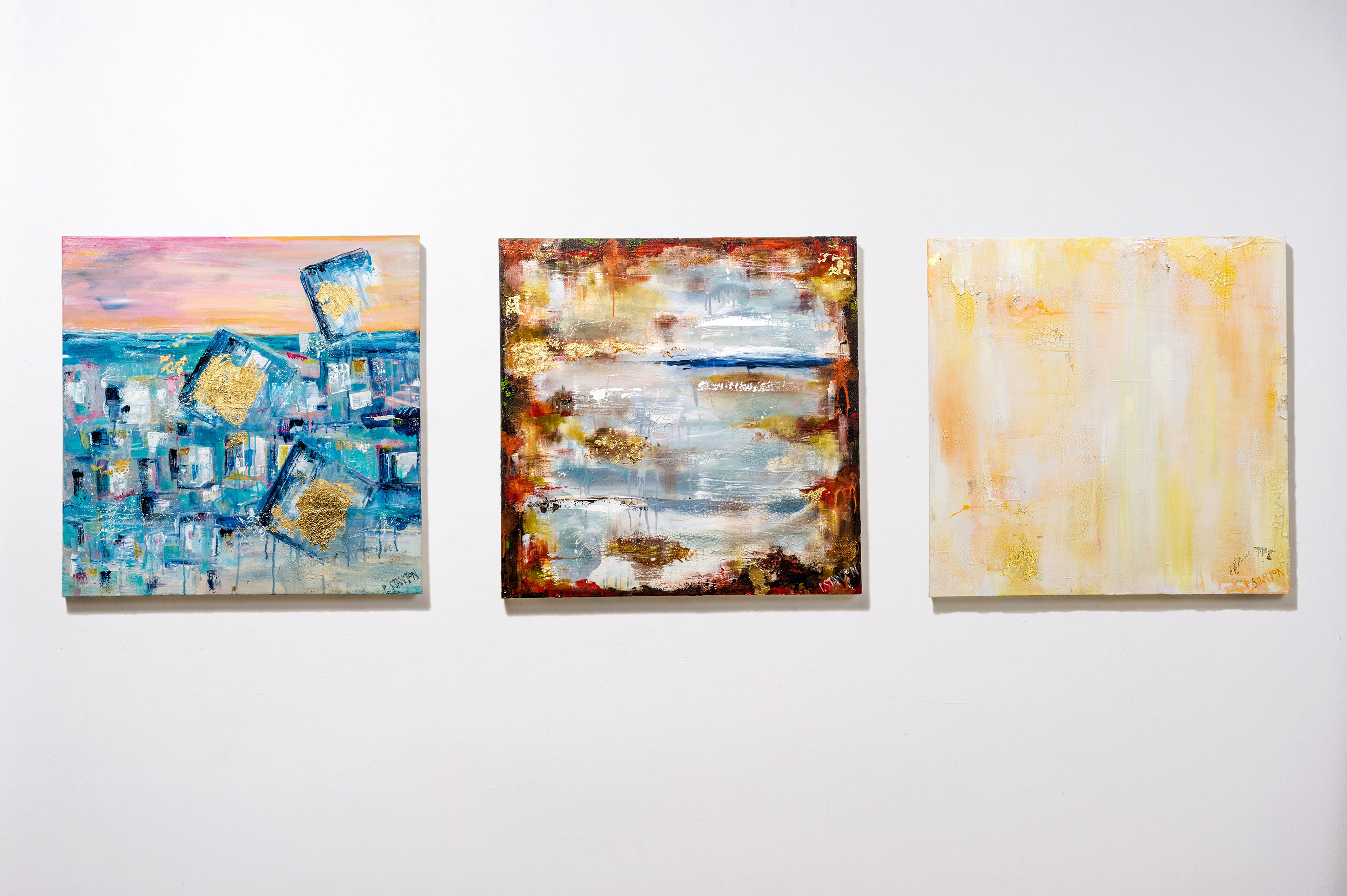
“These may sound impossible but the more you practice connecting your senses in new and surprising ways the easier it becomes.”
Helen Morgan, Head of Concept for TUI, said: “We are introducing Sketch to Etch kits to our TUI Sensatori Atlantica Rhodes resort this summer because we want our customers to fuel and engage with all of their senses when they are on holiday with us, and retain their holiday memories for longer”.
To find out how connected your senses are, you can take Professor Charles Spence’s quiz here at www.tui.co.uk/sensorialists

